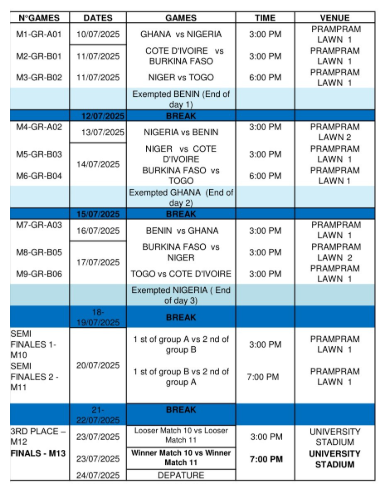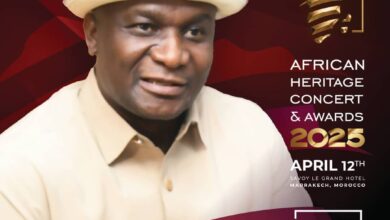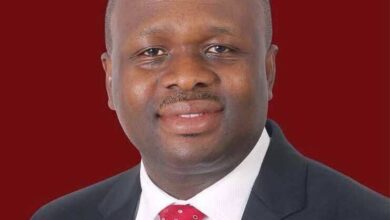Ghana set for another exciting clash against West African rivals Nigeria in July

Ghana’s Black Satellites will open their WAFU Zone B U-20 Cup of Nations campaign with a blockbuster clash against arch-rivals Nigeria at the Ghanaman Soccer Centre of Excellence in Prampram on July 10, 2025.
The youth national team will then face Benin on July 16 to complete their Group A fixtures in what promises to be a thrilling three-team group where every match counts.
The tournament, originally scheduled for June 15-30, was postponed and will now take place from July 10-23, 2025. The competition features seven West African nations, with the top two teams from each group advancing to the semifinals.
In Group B, Ivory Coast will square off against Burkina Faso in their opening match, while Niger takes on Togo on the second day of the tournament. The expanded format ensures competitive balance across both groups.
An elderly woman died and one person remains missing after a building collapsed in Cape Coast’s London Bridge community during heavy rainfall on Saturday morning, with rescue teams continuing search efforts…
This event serves as a key platform for nurturing young talent across West Africa, providing valuable international experience for the region’s most promising under-20 players.
The championship has become increasingly important for player development and regional football growth.
Ghana enters the tournament as hosts with home advantage, but they face stiff competition from traditional powerhouses Nigeria and an improving Benin side. The Black Satellites will be keen to make the most of playing on familiar territory.

READ ALSO: 2 Top teams handed transfer bans over GH¢750,000 debt to team, ex-player
Road to the WAFU Zone B U-20 final
The tournament format sees only the top two teams from each group progressing to the knockout stages, making every group match crucial. With just three teams in Group A, Ghana, Nigeria, and Benin will each play two matches to determine their semifinal fate.

Road to the WAFU Zone B U-20 final
The final is scheduled for July 23, 2025, at the University of Ghana Stadium.
MUST READ: Top Ghanaian club to shutdown with owner arrested by FBI over alleged internet fraud
The tournament represents a significant opportunity for Ghana’s young stars to showcase their talents on home soil whilst testing themselves against the best youth players from across West Africa.







